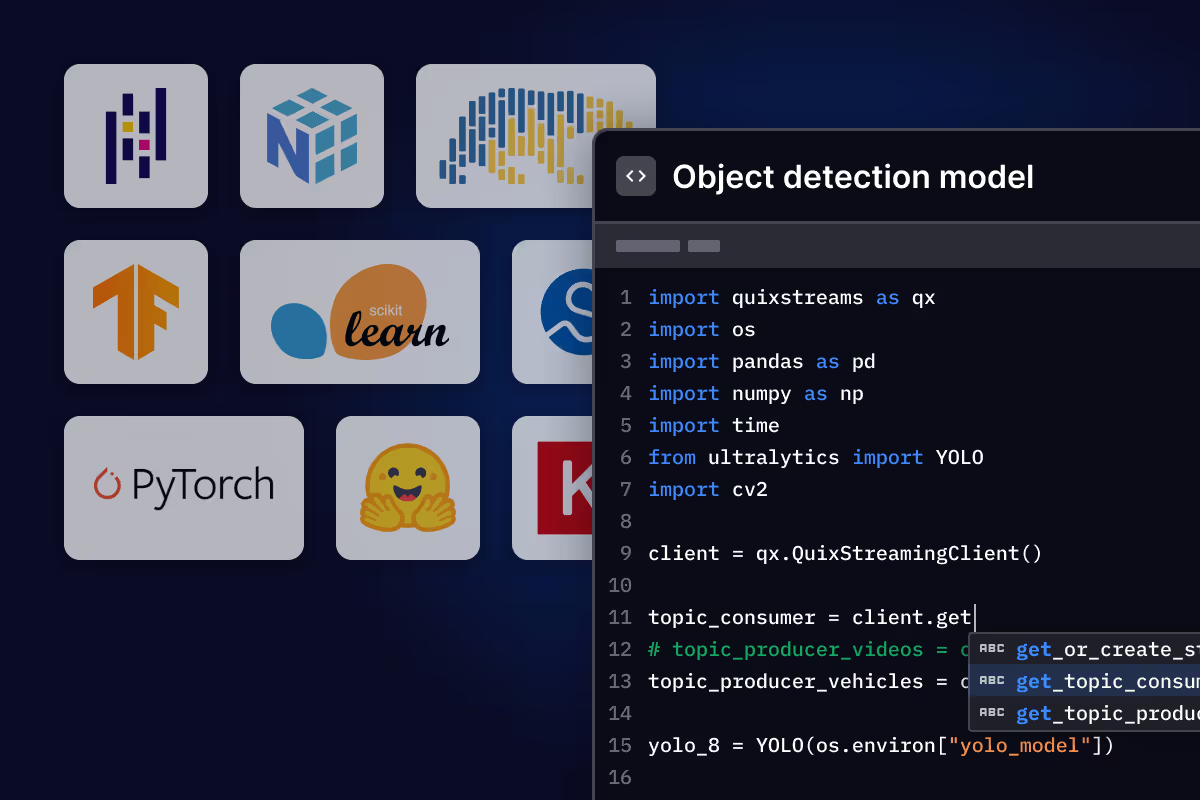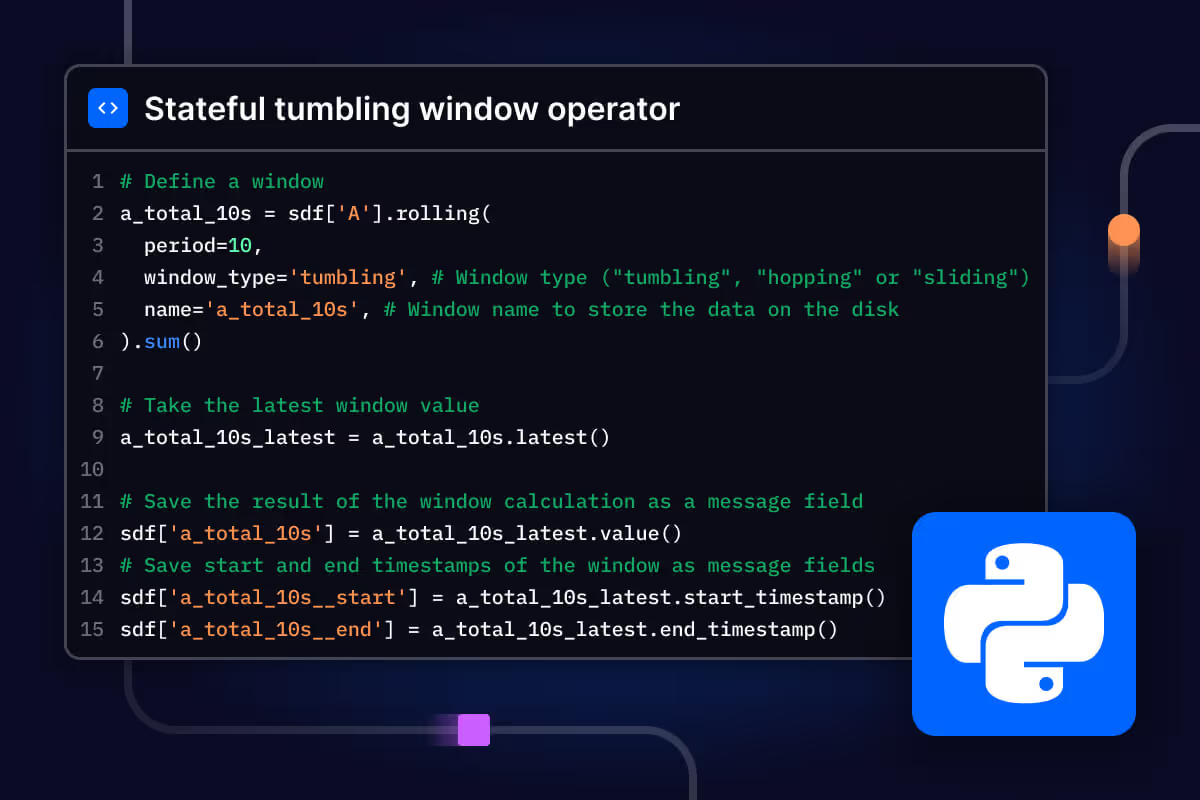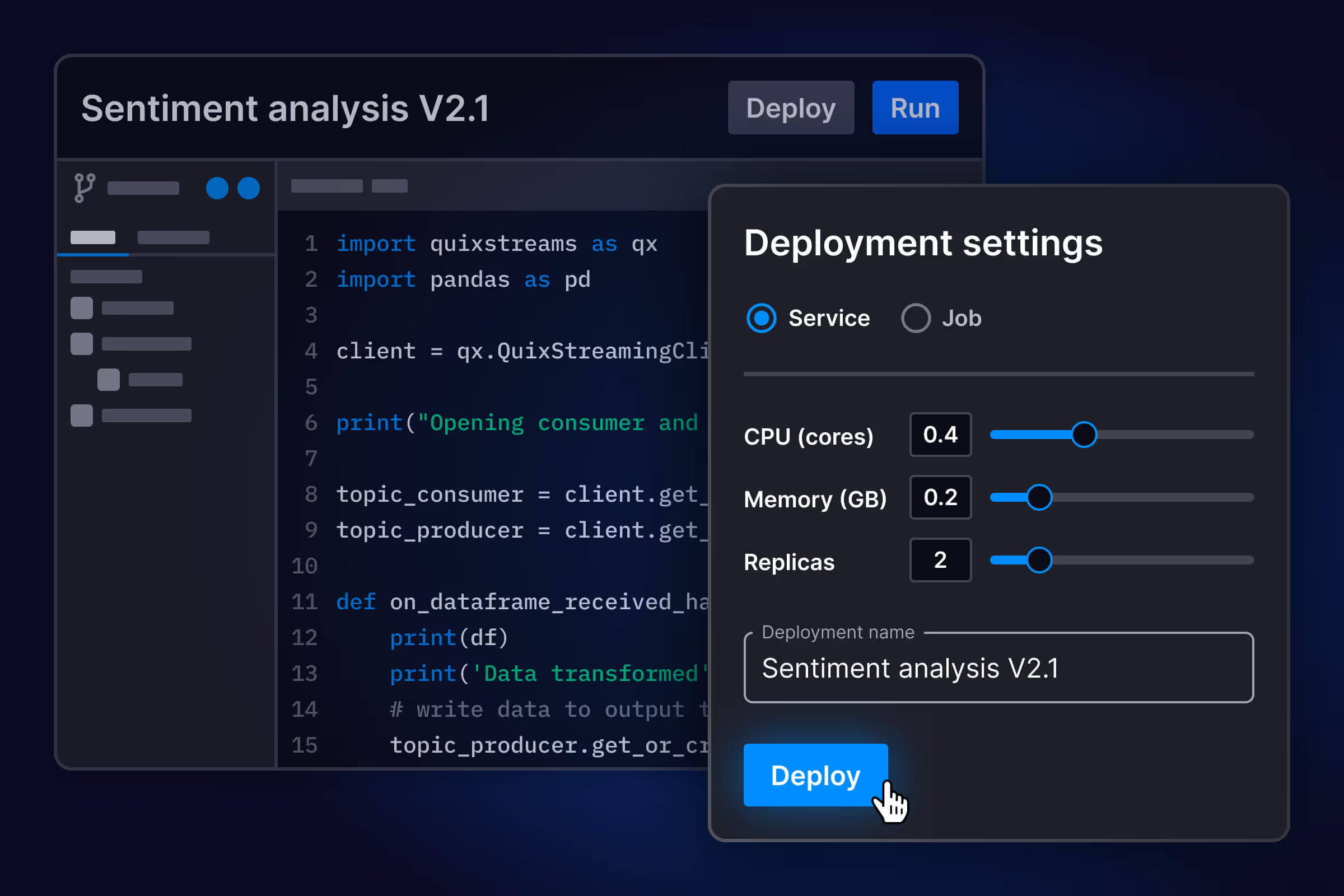Code and debug in pure Python
Getting PyFlink apps in production takes 6-12 months. Your problems start on day 1 when $ pip install apache-flink returns "No matching distribution found for numpy==1.21.4" Then you’ll need to learn PyFlink Table API for simple operations, DataStream API for more complex use cases. You’ll also find yourself setting up remote debugging, installing pydevd-pycharm, and modifying Flink JVM arguments. Skip that all and use your Python skills to their fullest. Bring in your favorite Python libraries and IDE. Enjoy the ease of developing, testing and debugging your stateful stream processing application in pure Python.
Simply $ pip install quixstreams to get started and see for yourself.
.svg)







